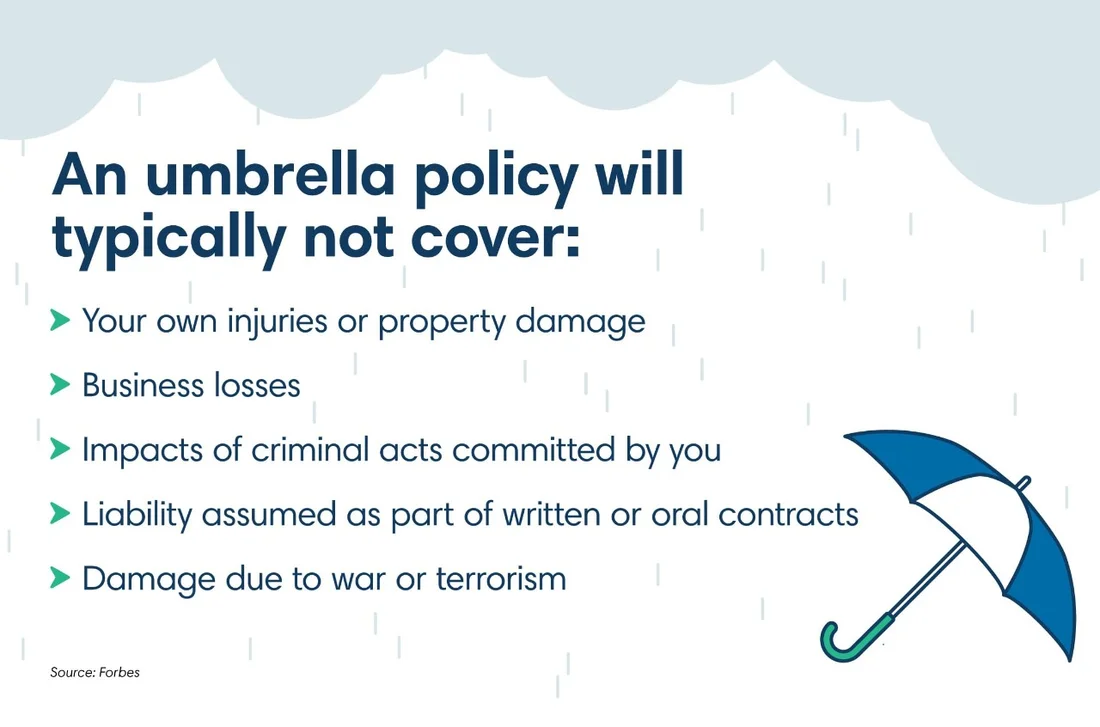Types of insurance you may need but might not have
Being prepared for the unknown is a standard component of financial planning. Purchasing an insurance policy may allow us to be prepared for unexpected emergencies—such as car accidents or property damage—but there may still be gaps in coverage.

As your wealth and responsibilities grow, your need for some lesser-known types of insurance may grow as well.
Growing insurance needs
In many ways, you can think of insurance as a way to protect your life's savings. As your life changes and your savings grow, so does your need for coverage.
"It puts a plan in place for what to do if something bad happens," says Louise Piasecki, Regional Insurance Manager at First Citizens Investment Services. "It's doing the proper planning now so that if a bad event does happen, you won't have to worry about it as much."
Piasecki and Ann Bass, Sales and Service Manager for Insurance Services at First Citizens, share types of extra coverage you may want to consider as life moves forward.
Start with personal umbrella coverage
Even if you have home and auto coverage, you may find yourself responsible for unanticipated costs related to your residence or vehicle—including recreational vehicles such as boats and RVs. Let's say someone is injured on your property and there's perceived negligence—such as faulty steps—or you're involved in an at-fault accident and cause extensive bodily harm or property damage to other individuals. In these situations, a personal umbrella policy may be useful because it provides liability protection beyond the limits of your home and auto policies.
"It's important for people to make sure they have umbrella coverage because your auto and homeowners liability may not be enough to cover you in every situation," Bass says.
What does umbrella insurance cover?
An umbrella insurance policy can be useful for accidents, lawsuits or negligence claims that exceed regular policy limits. Here are a few situations where this type of policy would make sense.
- Your dog bites someone at your home.
- A guest in your home is injured after tripping and falling on rotten boards on your deck.
- You serve alcohol at a party, and one of your guests is involved an auto accident on the way home.
- You're involved in a serious at-fault car accident, and someone else is injured above your policy's covered limit.
- You're subject to a slander or libel lawsuit.
"Make sure there are no gaps between your home and auto liability limits and the limits your umbrella carrier requires," Bass says. Also remember that umbrella insurance typically doesn't cover any harm that might happen to you or your property. It only covers you if you're found to be at fault and are responsible for others' injuries or damage to property and are possibly sued for damages.

Consider life insurance as an investment
In some cases, insurance not only protects your assets but can also help them grow. For example, a permanent life insurance policy—such as indexed universal life, or IUL, insurance—combines a payout to beneficiaries with a cash value component linked to the performance of a stock market index. By paying more than the minimum required premium—known as overfunding—you can accelerate the cash value's tax-advantaged growth.
This is referred to as life insurance and retirement planning, or LIRP. According to Piasecki, it may be a good option for those in the emerging-affluent sector with money to invest. It's still primarily an insurance policy but allows cash value to grow over time. You can access this cash value during retirement through policy loans or withdrawals, which could be tax-free depending on the amount.
If you already make the maximum annual investment to your 401(k) or Roth IRA and have more assets to invest, an LIRP may be worth discussing with your financial advisor—especially if you want to save aggressively for retirement.
According to Piasecki, this type of investment strategy isn't based on the Employee Retirement Income Security Act, or ERISA—meaning an LIRP isn't governed by federal standards like a 401(k) is. "For example, if someone is hoping to retire early, an LIRP doesn't have the same age limitations that ERISA plans would bring," she says.
Expect the unexpected
Insurance exists because surprise expenses can and do happen. But Bass and Piasecki emphasize that insurance isn't just about doom and gloom. It's also about protection and peace of mind. Sometimes, this means protecting yourself from unexpected circumstances.
For this reason, it's important to consider the following types of insurance to ensure you're adequately covered.
- Uninsured motorist coverage: Some states require drivers to have this in addition to their auto coverage, but Bass and Piasecki recommend it for all drivers—especially for protection in the event of hit and runs or accidents where the other driver has no or inadequate insurance.
- Inland flood insurance: Even if you don't live in a designated flood zone, your home still may be at risk of flooding—and homeowners insurance policies don't cover flood damage unless you add a special endorsement.
- Ransom insurance: This is sometimes included in corporate policies if employees frequently travel to high-risk kidnapping zones, but individuals can also buy these policies. Those with a higher net worth may want this added protection.
- Service line coverage: You may be held responsible for any costly damage to water pipes, cables, gas pipes or power lines if they break on your property. Also known as utility line insurance, this type of policy endorsement covers the cost of repairing or replacing damaged lines.
- Cyber and identity theft insurance: As cybercrime and digital theft continue to rise, so does the number of people getting cyber insurance. This can protect you in the event of a fraudulent wire transfer or ransomware attack, where a hacker holds your data hostage until you pay a fee to release it. This type of coverage is especially worth considering if you're a business owner.
Reevaluate your coverage regularly
As your life circumstances change, it's important to reevaluate your insurance coverage and see what you might want to add, edit or remove. "Review your life insurance any time a big life change happens or is expected," Piasecki says. For example, life insurance might not be as essential as you get older, but long-term care insurance may make more sense.
An advisor or team working on your behalf can help explain the types of coverage that may make the most sense for you in the short and long term. Piasecki helps clients visualize the unexpected by walking them through scenarios and asking where they'd pull money from if something unexpected happened today.
"We're trying to protect what you have now and what you'll have in the future," Bass says. "We want to give you that peace of mind that if something does happen, you have people who'll help you work through it."





